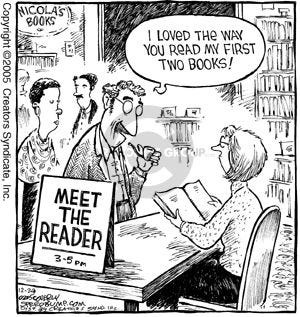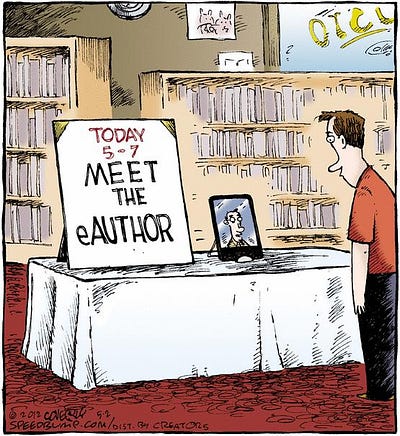
“The two most engaging powers of an author are to make new things familiar, and familiar things new” — Samuel Johnson
What the 18th century lexicographer didn’t say, was that the author should seek to make “new things new”. Pure originality of thought would presume too much of the reader. Ideas, like seeds, need fertile ground in which to germinate. Favourable conditions. Nourishment, not a vacuum.
250 years later, applied to the cut-throat realm of tech startups, we see market timing as a consistent prerequisite for success. Besides macro-economic factors, market timing encompasses “social climate”: user expectations, user behaviour, online trends. Only when this Zeitgeist is receptive, can the germination process truly begin.
Here we examine 3 reasons why today’s book market is ripe for iAuthor:

- An unsolved book discoverability problem: The number of books is increasing exponentially. This increase is not matched by a commensurate increase in readers, so more books are competing for fewer reader eyeballs. Readers are swamped by digital noise.

The result is a discoverability problem compounded by:
a) A scarcity of attention. Mobile and tablet readers are more time-squeezed than ever, so unknown authors have less time to capture and maintain reader interest.
b) Saturated genre categories. Many book categories have a surplus of books on every topic, particularly in the case of non-fiction. The resulting overlap makes it harder for individual books to stand out.
c) Poor user-experience. Annoying file downloads, restrictive DRM and awkward page navigation deters many readers from sampling books online. Unless readers can “try before they buy”, the likelihood of an impulse purchase drops significantly. Millions of books are left undiscovered.
Put differently, the gap between talent and opportunity is widening. iAuthorseeks to narrow this gap by connecting authors and publishers to readers. How? By making books not only “searchable” but “discoverable”. Amazon-style metadata will make a book searchable in seconds … if the buyer already knew of its existence. But what if they didn’t? That’s where iAuthor’s “serendipitous discovery” comes in. Bookstore-style browsing on a single, immersive interface … user-generated book samples … mind-expanding book themes … and a splurge of secret sauce.
2. The self-publishing phenomenon: By 2020, an estimated 50% of all eBooks will be self-published. Perceptions are changing fast. Indie books are entering the industry bestseller lists, and already make up around 25% of Amazon’s eBook bestsellers. Self-publishing is no longer dismissed as a tainted route-to-market, but a respected strategy for a new breed of author.Publishing conferences and trade fairs (most notably the London Book Fair) have opened their doors to self-published authors. Where once indies were ghettoised, now they are accepted.
This current of democratisation runs deep through iAuthor. All content is author-generated. No editor’s picks. Authors have an equal chance of their book cover or blurb being liked, their book being recommended, their book samples being browsed, their themes being followed. Put simply, authors have equal access to readers, regardless of their route to publication. The once quixotic notion of New York Times bestsellers sharing promotional space with edgy indies is real and manifest. A true democracy of opportunity.
3. Enhanced social media literacy: Fuelled by this self-publishing boom, a new species has arisen: the “authorpreneur”. Tech-savvy, agile and resilient, these author-entrepreneurs share more traits with startup founders than with reclusive bohemians. In a saturated book market, their survival depends on it. They have grasped the nuances of social media: brand-building, cross-promotion, analytics. They have exposed the fallacy of the ultra-passive “build it, and they will come” approach to reader-acquisition. They have embraced Eric Ries’ lean startup methodology — that products should be built iteratively, with customer validation at every milestone — and applied it to book marketing.

Driven by a desire for creative and promotional control, the authorpreneur is content to go it alone. Why rely on an often ponderous in-house team to market on their behalf? Social media scheduling tools keep content feeds topped up. Google Hangouts and Facebook Events make book launches virtual. Limited budgets can be bypassed. Resourcefulness is rewarded.
iAuthor is built on this exact premise: there is no one more committed to promoting creative content than the content’s creators. The result is a DIY brand-building platform catering to the full spectrum of authors. iAuthor provides the clay. Authors do the moulding.
Enhanced social media literacy is not restricted to authors — readers and literary bloggers are the true glue that binds the book discovery world. Bombarded by native ads, asked to share, review and buy books, online readers have become both the journey and the destination. iAuthor’s book discovery features rely on readers. With their social media networks acting as potent force multipliers, readers are the half that makes iAuthor whole.


